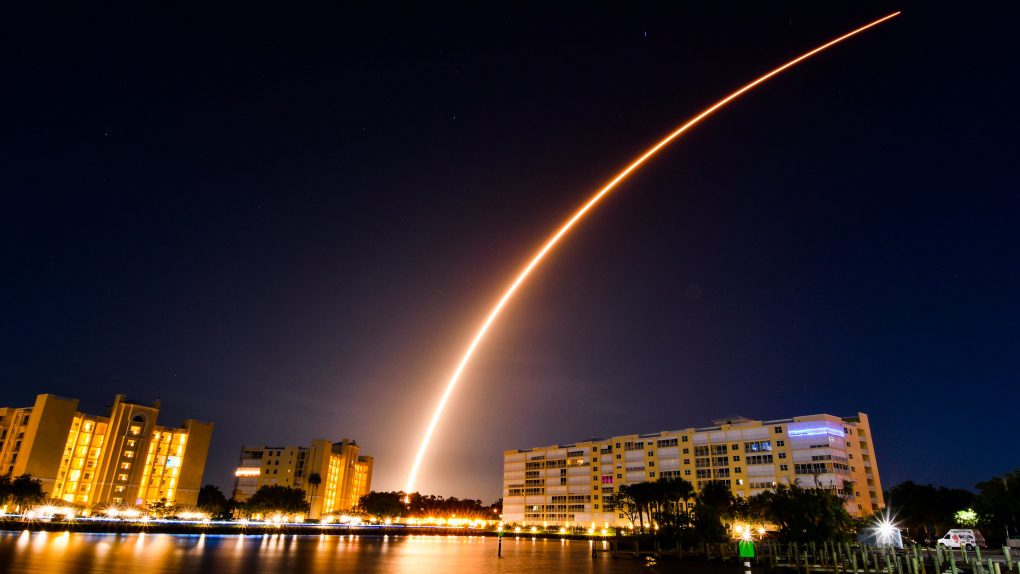Global Courant 2023-05-07 06:30:00
As Earth’s orbit continues to fill with discarded rockets and old satellites, experts say planes could be at risk from falling debris.
“There is a real risk,” Aaron Boley, an associate professor of astronomy and astrophysics at the University of British Columbia, told CTVNews.ca. “The use of space just expands, and if we put large objects into orbit, they eventually come down, and if they’re left unchecked, it’s a danger to people on the ground, at sea and in airplanes.”
Boley and a colleague recently wrote an article on the subject, and argued that large recent increases in both flights and satellite launches could result in an aviation tragedy unless efforts are made to contain and better track, regulate and respond to uncontrolled missile reentry. Boley’s co-author, UBC political scientist Michael Byers, says one 10 percent chance of space debris will cause one or more fatalities in the next ten years.
“If it can have a controlled return in principle, it should have a controlled return,” Boley said. “And if it absolutely can’t have a controlled return, there are other things that need to be done so that we have as much information as possible to move forward to make informed decisions and we don’t just suddenly react to every new large object that comes down. .This is what is happening now.’
Satellites are usually launched into orbit by rockets, which are then often left behind, eventually crashing back to Earth in what are known as uncontrolled reentries.
“The atmosphere slowly causes that orbit to decay and at some point it re-enters and you don’t know where it will eventually re-enter,” Boley explains.
Controlled reentry, on the other hand, means that a rocket or spacecraft has a planned return route, such as when astronauts come home from the International Space Station.
“You have things like re-ignition engines, which have a lot of rockets, and they can then direct the trajectory so that it goes, say, to a place in the ocean that’s out of the way,” Boley said. “That extra fuel is weight and that then takes away from the delivery of the cargo… So there is definitely a cost involved.”
While there is no known case of missiles or satellite debris hitting an aircraft, several incidents in the past have raised the alarm. In May 2020, a Chinese missile made an uncontrolled reentry, sending debris over the Ivory Coast. In November 2022, France and Spain closed off parts of their airspace to another Chinese missile that eventually crashed into the Pacific Ocean.
“So they had this sudden diversion of planes and it caused major delays. There was a major economic blow to it,” Boley said.
A look at the Canadian government’s aviation incident database shows that there may be space debris falling over or near the country, such as on January 18, 2007when a United Airlines flight “reported a large flaming ball with … debris or wreckage coming out” while flying over the Arctic.
“It’s largely a Wild West,” Boley said of the existing rules and regulations for rocket launches. “When a state launches a satellite and puts something into orbit and lets it come down unchecked, it’s doing something called exporting risk. So it leaves the rest of the world with a lot of the risk of that particular take over the launch.”
Some countries and airline groups, such as the Airline Pilots Association and the International Civil Aviation Organizationto have began to notice.
In March 2023, UBC’s Outer Space Institute released its “Recommendations from Montrealincluding calls for “global standards” for uncontrolled reentry at a time when there are more than 7,000 objects in low Earth orbit.
“Tens of thousands of additional satellites are being licensed, while hundreds of thousands of additional satellites are being proposed… many of them will re-enter the Earth’s atmosphere in the coming years and decades,” it read. “Because of their relative velocity of impact, even small or light pieces of debris that may be harmless to people on the ground can fatally damage an aircraft in flight or otherwise necessitate emergency action by the crew.”
The document was signed by Boley and Byers of UBC, as well as retired astronaut and former Canadian cabinet minister Marc Garneau, the Inspector General of the French Space Agency and the US Air Force’s chief of space security.
Boley hopes the international community will formulate a clear policy before an uncontrolled missile re-entry causes an aviation disaster.
“Ultimately (we) mess things up and just let things collapse under the paradigm that the Earth is so big we don’t have to worry about it,” Boley said. “But you know, that’s something we’ve done multiple times. The oceans are so big, we don’t have to worry about the plastic we throw in; the atmosphere contains so much material that we don’t need to worry. worry about all the carbon we put in. We do this over and over again.”







